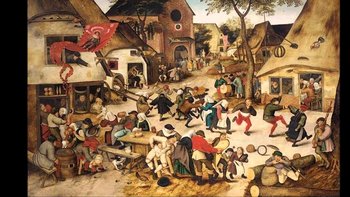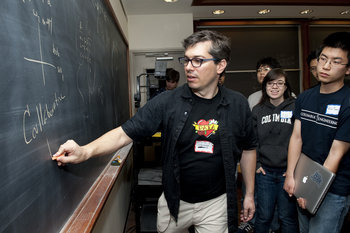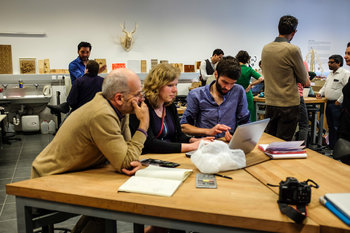
Confirmation Bias
Seeking evidence that supports your ideas without looking for any evidence that might contradict your ideas. For example, an individual feels that lavender essential oil might be a cure for the common cold. In order to confirm this they search for "lavender cures colds" and finds 10 webpages that sell the idea lavender is great for colds. This search is designed to ignore the thousands of more authoritative web pages that state the best known treatments for a cold.Filter Bubble
Designing your information consumption to avoid any information that conflicts with your world view. For example, an individual who only reads newspapers that conform to a particular political ideology and only follows people in social media that think much the same as they do. A filter bubble is essentially a tool for cherry picking as you are fed one-sided information on a continual basis.Suppressing Evidence
An argument that chooses information to support a claim while ignoring relevant information that contradicts the claim. For example, claiming that one nation is richer than another because the home ownership rate is higher while ignoring an important measure such as GDP per capita.One-Sided Argument
A one-sided argument, also known as card stacking, is an argument based on multiple cherry-picked facts. For example, arguing that a particular city is a terrible place by using only negative facts about the city and excluding obvious positives.Anecdotal Evidence
Using specific evidence over stronger general evidence. For example, claiming that crime is getting worse and giving examples of a few crimes while ignoring a general statistic that crime rates have declined significantly for more than a decade.Quoting out of Context
The use of supporting information that you present out of context. For example, a pseudoscience argument that quotes from scientific studies in a way that contradicts the actual findings in the studies. This reduces science to a series of sound bites while ignoring the actual content of the studies being referenced. For example, a study may begin with a background statement that states there is some reason to think a particular herb may treat a skin condition. This may be quoted by websites promoting the herb. However, the study goes on to state that results suggests the herb has no effect whatsoever on the condition.False Dichotomy
Falsely claiming that there are only two choices in a particular situation. For example, "either you want security or privacy, you can't have both." This is a strong form of cherry picking that picks options and then states that no other options exist.Univariate Analysis
An analysis based on a single variable that ignores obvious other variables that also influence outcomes. For example, a bank that examines its gender pay gap without controlling for factors such as education level, location, experience, job type and hours worked. A multivariate analysis is typically more accurate in any situation where multiple factors influence outcomes. However, the factors you choose influence your analysis significantly. By cherry picking factors, you can often shape results. This is one of the reasons that statistics are often used to mislead.| Overview: Cherry Picking | ||
Type | ||
Definition | A thought process or argument that selects evidence that supports a position while ignoring equally strong evidence that refutes the position. | |
Related Concepts | ||





























